Taking your newborn home can be so overwhelming. How are you supposed to tell what this tiny, screaming human wants?
New moms are flooded with worries while simultaneously dealing with their own postpartum experience. “Is he eating enough? Why is he breathing like that? Is his poop supposed to look like that? Why won’t he stop screaming? I’m a terrible mom!” I get it, you’re doing the hardest job of your life without an instruction manual. But you’re doing great, and most of this scary stuff is normal.
Here are some lifesaving tidbits of information to help you through the first few weeks with your newborn.
Your newborn will lose weight.
It is normal for babies lose up to 10% of their birth weight in their first week. Almost all babies lose some weight in their first week of life.
This does NOT mean you aren’t feeding them correctly! Eating is a skill that takes practice. Everything is new to them. At the first few checkups, the pediatrician will monitor their weight and make sure they get back to birth weight on schedule. Doctors want them to be back to their birth weight by two weeks, and once that happens, you can start letting them sleep longer between feedings.
Newborns scream—a lot.
Sometimes babies cry for a reason. They might be hungry, tired, or have a dirty diaper. There will be many times when you’ve tried everything and they’re still screaming bloody murder.
You’re not doing something wrong and, your newborn doesn’t hate you. You can try these ways to get your baby to stop crying, but there will be times when all you can do is wait until they’re done. They often have a certain time where they scream every day. Many parents refer to this as the “witching hour”.
Sometimes their breathing sounds weird.
This is one of those terrifying things newborns do that are actually normal! Newborns have irregular breathing patterns. They can sound like they’re gasping or breathing too fast. If your baby returns to normal on their own and seems otherwise fine (not lethargic or feverish), there’s no need for concern.
Newborns don’t need as much as you think they need.
Yes, the parenting trend of the current era is overparenting. But your newborn truly doesn’t need baby gym class, baby Einstein videos or even constant attention.
It’s totally understandable when you bring baby home from the hospital, sit down and look at them and think “what do I do now?” If the baby is content, you don’t do anything.
New babies are easily overstimulated and they need down time, just like all people do. Hold them, feed them, change them, talk to them and sing to them. If you babywear, you can strap him up and go about your household chores. And sometimes, just spread a blanket on the floor and leave them be. Floor time is good for them (look into container baby syndrome in you’re still not convinced!)
Spit happens.
Spitting up, that is. It’s normal if baby spits up frequently. This happens because the sphincter at the top of baby’s stomach isn’t fully functional yet and doesn’t close all the way.
There’s nothing worse than getting a good meal into your little one, only to have him spit up what seems like everything. It’s gross, and you wonder if your baby is getting the nutrition he needs. As long as your baby is gaining weight and doesn’t seem to be in any discomfort, there’s nothing to worry about.
Cradle cap is gross but harmless.
Those greasy, yellowish flakes of skin on your little angel’s head may look horrendous, but they’re temporary and harmless. This is yet another one of the awkward phases that your baby goes through as he gets used to the world outside.
As tempting as it may be, resist the urge to pick at them. This can cause raw spots on your baby’s head that could become infected. Instead, use a baby brush to remove the excess skin after a bath.
Babies get zits.
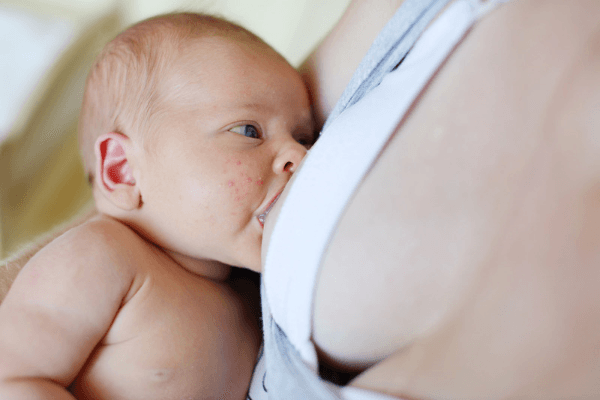
We all want our newborns to look perfect in family photos, but that isn’t always realistic. Your pregnancy hormones will be in your newborn’s system for a couple months. Baby acne isn’t pretty, but it doesn’t cause them discomfort and should go away on its own after 3-6 months. If it bothers you, rubbing a little breast milk on the affected area can help clear it up.
Almost all babies develop a bald spot.
Newborns are really killin’ it in the looks department, aren’t they? The bald spot on the back of the head is like a baby trademark. Babies’ hair rubs off because they lie on their backs so much. It’ll start to grow back when they start spending more time on their tummy and sitting up. You can cover up the offending area with a cute headband or hat for the pictures in the meantime!
Brace yourself for newborn poop.
Forget everything you think you know about how humans poop, because newborns follow their own set of rules when it comes to pooping.
For the first six weeks or so, you can expect your baby to poop roughly once per feeding. (Yes, that means 8 times per day or more!) This frequency is normal for both breastfed and formula fed babies.
If you are concerned about those 8 poops per day being super harsh on baby’s sensitive skin, this cream is what I used for all my babies. It is super thick and creates a barrier between wetness and the skin so you can use it as a preventive measure. If baby already has a rash, pat the skin completely dry with a cloth after wiping and then apply the cream.
Wondering what baby poop looks like?
Breastfed babies’ poop is liquidy, yellowish in color and appears “seedy”, while formula fed babies have darker, thicker stools.
Newborns are known for having explosive poops, so be on guard while changing or bathing or anytime your babe is naked. That stuff can shoot far and it comes without warning!
After the first six weeks, the digestive system matures and babies poop much less- more like 1-3 times per day or even once every couple days for breastfed babies.
You don’t actually need to bundle your baby up.
The rule of thumb is to dress your newborn in one more layer than you would wear. It’s tempting to bundle your fragile newborn in a million layers, but they don’t need that much. A cotton hat is typically used in the very beginning too as they aren’t great at regulating their body temperature.
Remember, your body is a great way to keep baby warm too. Those snuggles are exactly what newborns need, and skin to skin is even better!
Want a little trick to check if baby is hot or cold? Touch the back of their neck. If the skin there is warm or sweaty, they are too hot. If it feels cool, add a layer. Hands and feet aren’t good places to test baby’s temperature since they often feel cold due to poor circulation.
How can I tell if baby is eating enough?
This is probably the #1 concern (obsession?) of new parents, ESPECIALLY when breastfeeding. It is so easy to worry about this when there is no easy way to tell how much your baby is eating.
These are the signs your baby is getting enough milk:
- 6+ wet diapers/day
- several poop diapers per day
- normal weight gain (back up to birth weight by 2 weeks)
- baby is content after feedings
- breasts feel softer and lighter and feeding
Want to set yourself up for breastfeeding success? Don’t miss this post of the 5 must-dos to start breastfeeding off right.
Don’t be concerned when your milk takes a few days to come in after birth. You are making a small amount of ultra-concentrated colostrum, which is enough for a newborn’s tiny, marble-sized tummy for the first few days.
New babies don’t sleep quietly.
Well, they might sleep quietly while they doze in your arms all day. But lay them down at night when you’re trying to sleep, and the noises begin.
Babies do the strangest things when sleeping. They squeak, gasp, grunt, snore, laugh, cry, and smile in their sleep. Some of their mannerisms are concerning, and some are downright adorable.
After a few nights, you’ll probably learn to sleep through all the strange baby noises. If not, a white noise machine might help. Just keep the volume low enough that you’ll still be able to hear the baby crying.
Newborns are stronger than they look.
“What if I break the baby?” Don’t worry. Newborns may look fragile, but they’re quite resilient. You won’t injure your newborn by dressing him or, hurt his itty-bitty arms and legs as you bathe him or rock him to sleep. A firm grip on your slippery baby won’t hurt him and will prevent you from dropping him during bathtime.
Assuming you are supporting their heads and never, ever shaking them, you won’t inadvertently harm your baby.
Their soft spots still have protection.
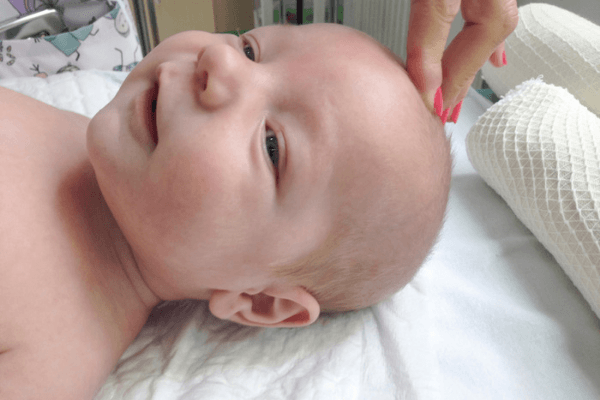
You should still be careful around the soft spot, or fontanelles, of course, but their brain isn’t right underneath the skin. The soft spot has a sturdy membrane protecting it. It won’t hurt your baby to touch it, gently wash it, or go about your normal routine in taking care of him.
Babies don’t hold grudges.
Don’t beat yourself up if you make a mistake. I promise, your baby will still love you.
Maybe you didn’t realize he was sitting in a poop diaper for two hours. Or you didn’t figure out that he was screaming because of an ear infection until the doctor caught it at the next well-child visit. It’s ok. You are still a good mom.
There is so much pressure on new moms to be perfect, but the truth is we are learning how to be parents while on the job. Often times we don’t have much support and it seems like we are muddling through on our own. Give yourself a little credit that you are doing the best you can.
And if it makes you feel any better, I left baby #4 outside in his carseat next to car once. Completely forgot he existed for about 20 minutes. So you’re doing pretty good 😉
You can’t spoil your newborn.
Maybe your grandma told you that you’ll spoil your new baby if you hold him too much, or if you comfort him every time he cries. Sorry Grandma, this is simply not true!
According to science, holding babies actually contributes to their brain development. There is a reason your mama instincts tell you to touch, cuddle, and comfort your little one. Enjoy the guilt-free cuddles with your little angel.
People will judge you, and that’s fine.
You’re a mommy now, and as much as it sucks, mommy-shaming is very real. Remember, you can’t please everyone. Nor should you have to! As long as you are meeting your baby’s needs, you’re doing it right. The only person you need to answer to is your child.
Be confident that you know what’s best for your little one. Don’t feel obligated to do something because someone else told you to do it. Their opinion plus $4 can buy them a cup of coffee at Dunkin Donuts.
What other concerns do you have about taking your newborn home?
Or if you’ve already done it, what would you tell a first time mom?
Leave a comment!
And for all things pregnancy and baby, follow me on Pinterest:
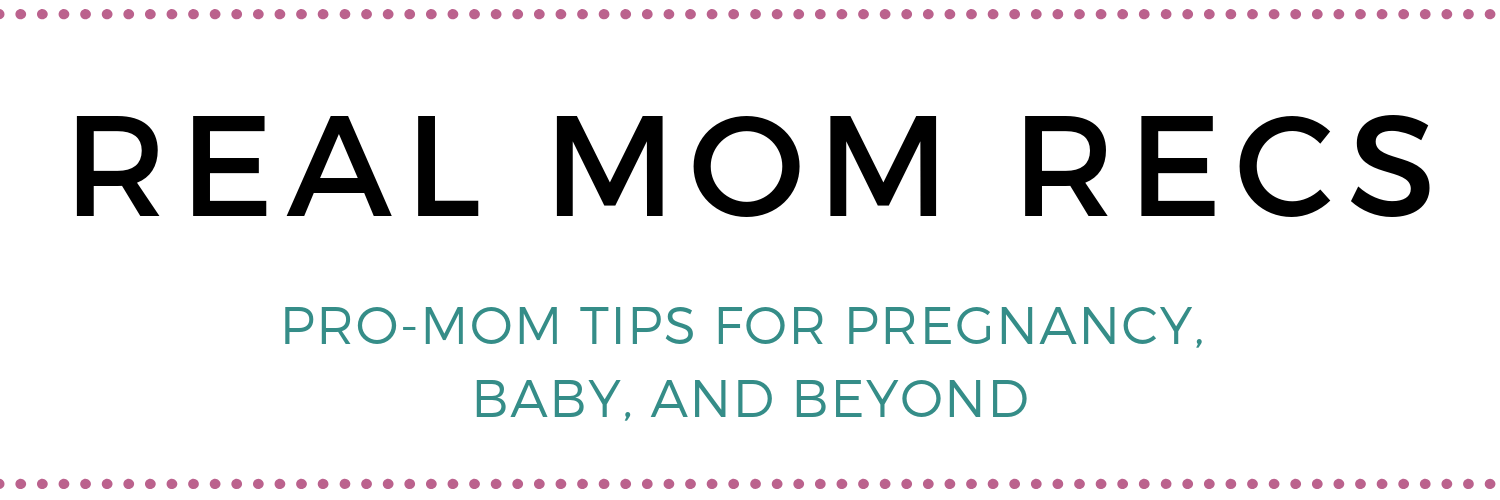

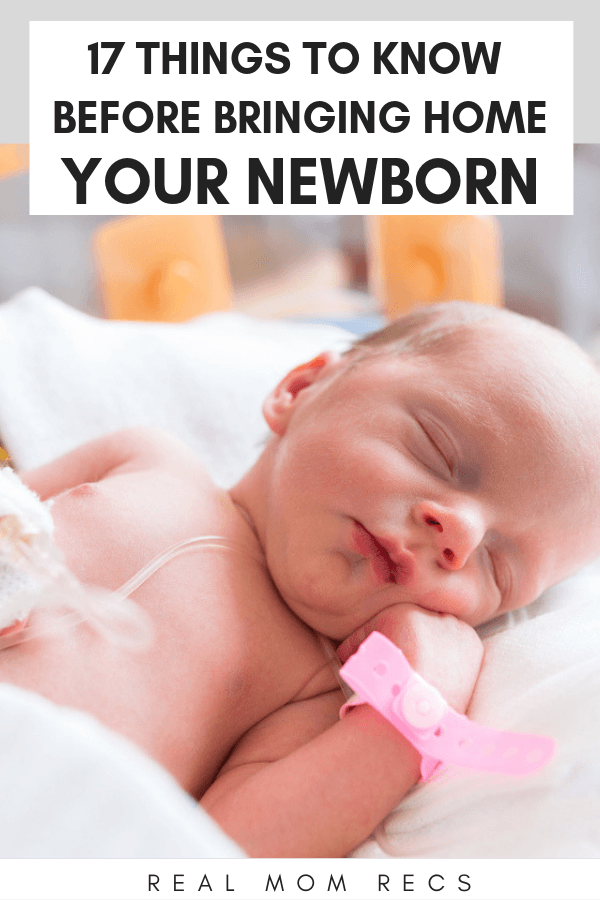
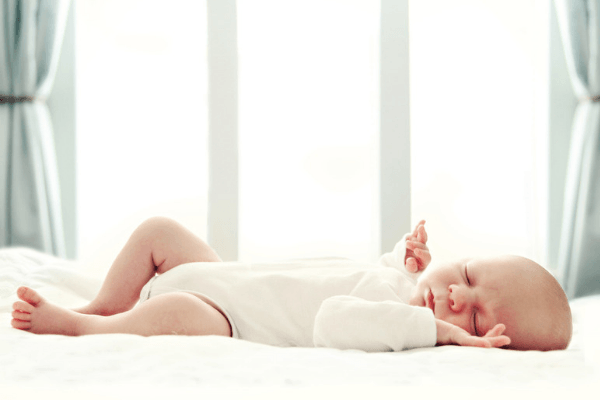
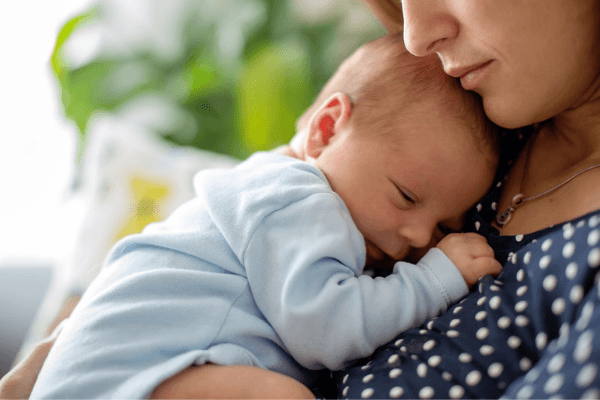

5 comments
Lots of things to do, but all worth it.
Oh my goodness! This really helped to for a lot of anxiety to rest! Your words will be echoing in my brain. Thank you!